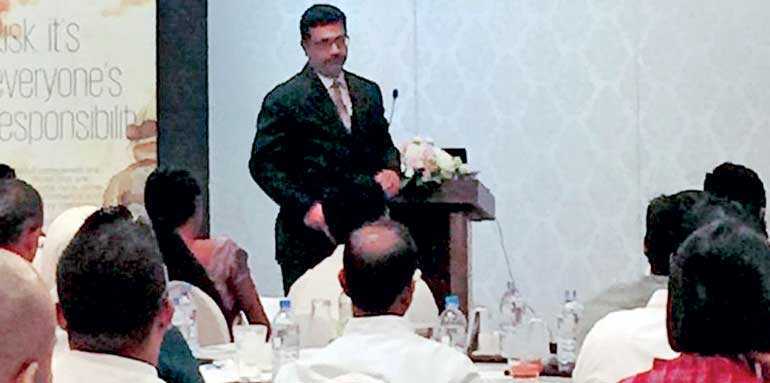Sunday Feb 22, 2026
Sunday Feb 22, 2026
Monday, 11 February 2019 00:39 - - {{hitsCtrl.values.hits}}



The recent workshop on ‘Leases – Demystifying tax and accounting issue’ conducted by KPMG Academy held at the Movenpick Hotel, Colombo highlighted the point that strategic decision makers are called upon to wear their thinking hats and evaluate the options available in the context of the latest changes to tax and accounting framework.
Tax implications applicable to leases have undergone modifications due to the introduction of the new Inland Revenue Act. Moreover SLFRS 16 on leases applicable from January 2019 has imposed more burden on personnel involved in accounting and tax compliance in corporates. In this context there is an immediate requirement to revisit all the existing lease contracts with a fine tooth comb.
The titles given by legal professionals to legal documents are inconclusive for tax and accounting purposes. The terms, covenants and conditions in contractual documents should be analysed in the context of the definitions included in the SLFRS 16 as well as the new Inland Revenue Act in order to ascertain tax and accounting consequences. Though more often than not leases determined as financial leases for SLFRS 16 may follow the same classification under the new Inland Revenue Act, there could be instances where the classification could differ.
KPMG Partner – Accounting Advisory Services Shameel Nayeem delivered the session on accounting aspect of leases under SLFRS 16 outlining the key aspects of the standard.
He mentioned, “With the implementation of SLFRS 16, all companies that lease major assets for use in their business will see an increase in reported assets and liabilities. This will affect a wide variety of sectors, from airlines that lease aircraft to retailers that lease stores. The larger the lease portfolio, the greater the impact on key reporting metrics.”
Nayeem added, “The key change will be the increase in transparency and comparability. For the first time, analysts will be able to see a company’s own assessment of its lease liabilities, calculated using a prescribed methodology that all companies reporting under SLFRS will be required to follow. The impacts are not limited to the balance sheet. There are also changes in accounting over the life of the lease. In particular, companies will now recognise a front-loaded pattern of expense for most leases, even when they pay constant annual rentals. And the standard introduces a stark dividing line between leases and service contracts – leases will be brought on-balance sheet, whereas service contracts will remain off-balance sheet.”
The new tax accounting for leases may pose challenges and risks to companies. The fact that failure to classify the legal contracts accurately for tax purposes and errors committed in computing interest component in finance lease rentals may result in under or overpayment of taxes culminating in assessments being raised by the Department of Inland Revenue or financial losses being caused to the company concerned was emphasised by Suresh Perera during his presentation.
Hasna Hassan during her presentation clarified in detail the manner in which the interest component embedded in a lease rentals to be ascertained as per the new provisions in the Inland Revenue Act. The Act refers to the terminology ‘blended loan’ and sets out the formula for detecting the rental into capital and interest for tax purposes.
The new Inland Revenue Act poses many challenges to officers responsible for maintaining accounting in companies. In order to comply with the new IRA in addition to capital allowance schedules claimable on the qualifying assets, the companies would be required to maintain distinct schedules for leases to record lease rentals as the requisite data for filing the Tax Returns cannot be easily gathered from financial accounts.
Hasna Hassan also explained to the audience the manner in which tax accounting should be carried out separately from lessor’s perspective as well as the lessee’s perspective.
Due to leases and financial instruments being a complicated and an important area, KPMG Academy will be conducting more seminars in the near future in this arena.